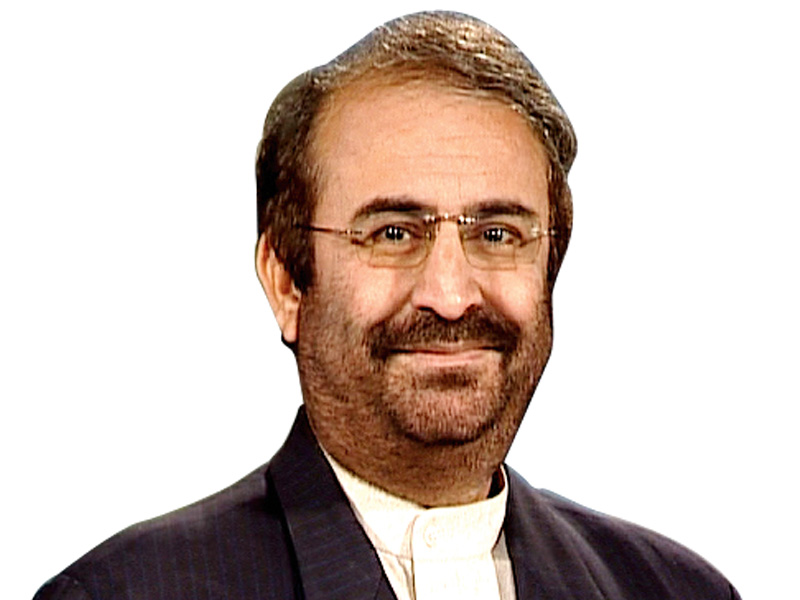
Thousands of Afghanistan’s tribal, political leaders and lawmakers in Kabul are deliberating whether to allow US troops to stay beyond 2014 amid controversy over certain issues and growing mistrust.
During the opening ceremony of the consultative Loya Jirga, President Hamid Karzai admitted to a shaky relationship with the United States.
“I don’t trust them and they have little confidence in me. I leave the decision to you on when the Bilateral Security Agreement (BSA) should take effect – before or after the 2014 presidential and provincial council elections,” Karzai told nearly 2,500 delegates on Thursday. Karzai’s stance on delaying a decision on signing the BSA till the next Afghan president takes charge has been negatively received in Washington. The US is hoping an agreement is reached sooner. Hours after Karzai’s remarks, the White House reiterated it wanted the pact with Afghanistan to be approved by the end of this year.
White House spokesperson Josh Earnest said prompt action is critical to America’s planning. Disagreement on a crucial document which will determine the United State’s future role in the region reflects deep mistrust as Kabul has rejected calls for an early signing of the BSA. The Loya Jirga’s recommendations will be referred to the national parliament for a final decision, which means the US has much waiting to do.
Kabul had been warned by the United States government if an agreement was not inked by the end of October, it would consider a “zero option,” which would mean pulling out all US troops from the country. The warning has been taken seriously by the pro-US elements who then mounted pressure on Karzai to reconsider. On the jirga’s second day, participants were divided into 50 committees to discuss various aspects detailed in the BSA.
The agreement would give the US legal authority to maintain troops and bases in Afghanistan for at least a decade; this can be extended for another 10 years. It will also allow 10,000 to 16,000 boots on ground in nine bases. If signed, the agreement will come into effect from January 1, 2015.
The proposed stations for US forces include Kabul, Bagram, Mazar-i-Sharif, Herat, Kandahar, Shorab, Gardez, Jalalabad and Shindand. Other locations may be agreed upon if authorised by the Afghan defence minister. The US also seeks the use of dry ports, including areas along the Pak-Afghan border, namely Torkham in Nangarhar province, Spinboldak in Kandahar province, Toorghundi in Herat province, Hairatan in Balkh province and Sherkhan Bandar in Kunduz province.
Both countries have been consulting over the matter for nearly two years, particularly the controversial aspects of the BSA which includes the issue of immunity for US soldiers and the exact locations for military bases.
In June, Karzai suspended talks on the BSA in reaction to the Afghan Taliban office in Qatar. Though talks on the agreement have resumed, tensions are on the rise over the timing. The issue of foreign interference is also a controversial topic and Karzai wants a firm pledge from the Americans to join forces with the Afghan military to respond to external threats.
“The United States shall regard – with grave concern – any external aggression or threat of external aggression against the sovereignty, independence, and territorial integrity of Afghanistan, recognising such aggression may threaten the parties’ shared interests in Afghanistan’s stability, and regional and international peace and stability,” an excerpt from the BSA states.
There is strong support for the BSA within Karzai’s camp, including security adviser Rangin Dadfar Spanta and the Afghan army chief General Sher Mohammad Karimi. Both have been involved in convincing parliamentarians to sign the deal so international aid is not disrupted.
Published in The Express Tribune, November 23rd, 2013.
COMMENTS (5)
Comments are moderated and generally will be posted if they are on-topic and not abusive.
For more information, please see our Comments FAQ

1730360426-0/Menendez-Brothers-(2)1730360426-0-165x106.webp)
1732534556-0/taylor-(14)1732534556-0-165x106.webp)
1725872216-0/Tribune-Pic-(3)1725872216-0-165x106.webp)
1732532771-0/BeFunky-collage-(89)1732532771-0-165x106.webp)
1732518687-0/Copy-of-Untitled-(78)1732518687-0-270x192.webp)











The BSA will be signed with the blessings of Russia, China, India and Japan; the only nations that matter.
A good article from BBC on why Pakistan fears foreign pullout from Afghanistan.
http://m.bbc.co.uk/news/world-asia-25034112
@MythicalCMD:
Both China and Russia are strong supporters of the USA keeping a military presence in Afghanistan post 2014 - both have been applying pressure on Karsai to sign the deal. Easy Google.
The issue of foreign interference is also a controversial topic and Karzai wants a firm pledge from the Americans to join forces with the Afghan military to respond to external threats. . Guess which country is considered an "external threat"? I guess the Afghans really don't believe that Pakistan is a friendly country - anyone surprised? One might interpret this language as their OK to continue drone attacks against Haqqani as well.
Signing this deal would be the biggest mistake Afghanistan has or will ever make, it's so befuddling that the security analysts in Afghanistan can't fathom the geo-strategical implications of this deal. In the 80's it was the Soviet Union wanting to stretch their physical might on this particular land by deploying this much 'boot' now it's the Americans. The White House and CIA should learn from the history. One should wonder how Russia and China are going to react to this? What changes will they bring to their policy? And ofcourse not to forget Pakistan and it's archenemy India as well, In my very honest opinion, The US is overestimating its super-arrogant-might, and history suggests that's when a downfall of a empire starts. The world is changing in a rapid pace, let's see how the map of the world will look like in the next 50 years.